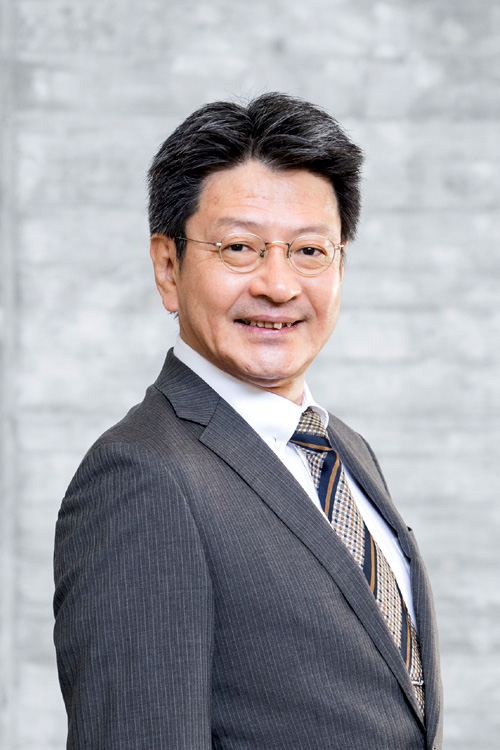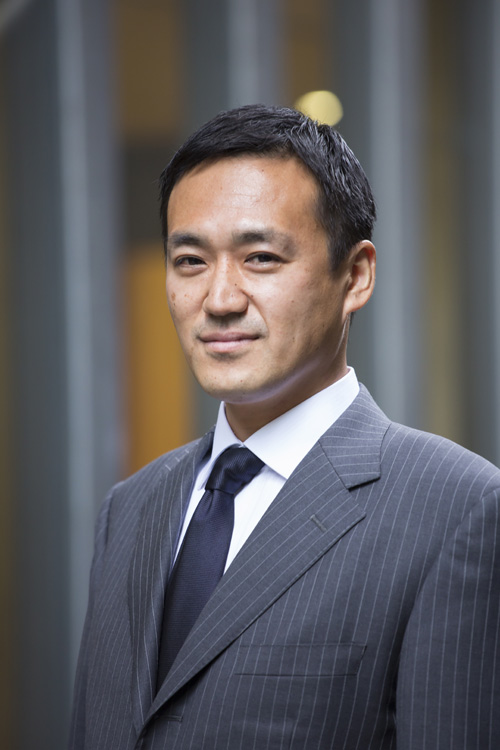- Home
- Kyushu Sustainability Initiative
Kyushu Sustainability Initiative
Message from Executive Vice President

Kenji Iwata
Executive Vice President
Kyushu University
Humanity is currently facing a range of challenges, including climate change, extreme poverty, and economic inequality. In these circumstances, the 2015 United Nations Summit created the SDGs: Sustainable Development Goals. The universal goals are expected to be achieved by 2030. The United Nations has identified the ten years beginning in 2020 as the “Decade of Action” to accelerate efforts to achieve the SDGs and called for a greater emphasis on achieving a sustainable society. Kyushu University is also expected to step up the search for ways to achieve its objectives.
We, at Kyushu University, have created excellent human resources to contribute to global environmental protection, sustainable society, and social engagement through various research and educational activities. However, to achieve this objective, efforts must continue to be intensified, we must promote technological and social processes to seek solutions to problems.
In addition, academia and society, including industry and government, must work together to achieve the SDGs. By exploring and strengthening the connection between academia and society, it will be possible to establish a new accumulation of basic scientific knowledge and to solve more complex problems in the real world.
We also contributed to society in various ways by working with universities, industries, and local governments to deliver the importance of science and education. For example, we have promoted the social application of technology and scientific knowledge in partnership with businesses and local governments, endorsed community development and educational initiatives through workshops and policy proposals based on scientific knowledge. Kyushu University has inter-university partnerships with prestigious universities worldwide. We have fostered excellent human capital and generated new scientific knowledge through successful exchange programs and joint promotion of science.
In addition, the global epidemic of the new coronavirus pandemic has shown that unpredictable influences can have a substantial impact on people’s lives. To address this issue, it is our duty, as the people of the University, to think deeply about the “coexistence of nature and human beings” and the “coexistence of nature and science and technology.” Solutions based on these ideas should help address the new coronavirus pandemic and be the first step to creating a new and sustainable future age.
Kyushu University will continue to step up efforts to achieve the SDGs, improve education, research, and collaboration related to the SDGs, and take steps towards a sustainable society in the future.
Message from Representative

Shunsuke Managi
Chief Sustainability Officer (CSO)
Distinguished Professor
Kyushu University
Kyushu University has set its goal to contribute to the “Sustainable Development of the Human Being.” The following three requirements are required for human sustainable development.
1) Promote development (equivalent to a “comfortable future society”) that can meet the needs of today’s generation without compromising the ability to meet the needs of future generations.
2) Set greenhouse gas emissions toward a real zero target by 2050 (equivalent to “a decarbonized society”).
3) Guarantee a healthy and secure society (equivalent to a “health and security society”).
In summary, we must make progress towards a community that increases the quality of human life and the well-being of present and future generations in the light of resource and environmental constraints.
Comfortable future society. The realization of a comfortable environment for the future, a transition for sustainable human growth and the earth, is a matter of urgency for humanity. The SDGs are now global challenges. Numerous problems related to SDGs, such as biodiversity, have already surpassed the world’s allowable limits. Technologies that promise a sustainable future are currently undergoing development. These technologies, including infrastructure, health, education and the decrease in fossil fuel usage, and the Sustainable Development Goals (SDGs) for comprehensive growth, contribute to human activities and improve the global environment.
Having said that, to encourage quantitative sustainability assessment based on scientific expertise, the United Nations report developed a sustainability index (The New National Wealth Index). The New National Wealth Index is an index that measures the total capital that creates a sustainable society and economy and is determined by summing up the human, physical natural capitals. By measuring and forecasting wealth using powerful instruments such as the New National Wealth Index, we can decide what direction the future world should take to achieve a sustainable society.
Realizing Decarbonized Society will reduce greenhouse gas emissions such as carbon dioxide (CO2) to zero as a whole by 2050, which is a common challenge for the world. The Paris Agreement, an international framework, was adopted in December 2015 with the global goal of achieving a balance between anthropogenic emissions of greenhouse gases by the second half of this century.
Conventionally, the world was aiming for a society with low CO2 emissions (low-carbon society). However, there is greater awareness that the low-carbon society’s objectives are inadequate to combat climate change. Therefore, the international community urges to transition from a low-carbon society to a decarbonized society, mentioning that the simple extension and improvement of conventional technology will not be enough to achieve a decarbonized society. Therefore, it is important to envisage the future of the energy system of society and lead the paradigm shift in technology, industry, and society. Examples would be the hydrogen society model that uses CO2-free hydrogen from clean energy sources such as wind power and negative emission technologies to recover CO2 from the atmosphere directly. Therefore, while confronting real problems such as problems regarding renewable energy and the re-start of nuclear power plants, we will broaden our efforts to build a society that will make Kyushu’s future innovative technological innovations and policy suggestions forefront of energy problems.
Healthy and stable society refers to a society that contributes to a decrease in the medical costs of governments and local governments while at the same time aiming at a society in which people can remain healthy for a longer period of time. Aiming for a community where people can live in good health and work in peace of mind, and address issues that hinder society’s sustainable development and the economy can lead to a healthy and secure society. To ensure this healthy and secure society and improve quality of life, it is necessary to improve medical care and efficiency by utilizing medical data and digital medical care technology.
The establishment of a medical treatment/prevention system and a device that integrates clinical science is also critical. In Japan, particularly, the need for technological innovations to establish a healthier and happier life and the social structure is rising due to the aging populations and health demands. Kyushu University should accelerate efforts to generate social value through health technology.
To realize a sustainable society, it is necessary to make efforts to meet all these requirements. To this end, Kyushu University should further encourage both basic and applied science, and support research efforts in multiple fields, and advocate efforts to develop solutions using new pieces of knowledge. I hope that the University of Kyushu will work as one to achieve the SDGs and contribute to the realization of a prosperous society.
- 九州大学×SDGsに関するお問い合わせ
- 九州大学企画部社会共創課共創企画係 kisykikaku@jimu.kyushu-u.ac.jp
